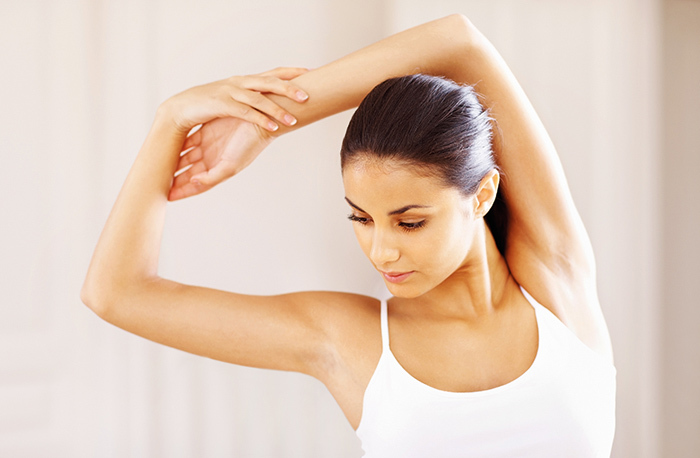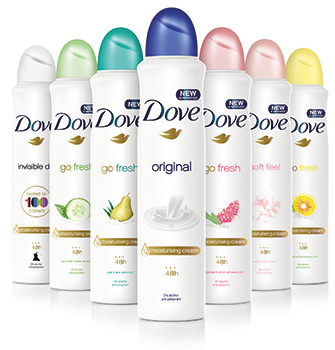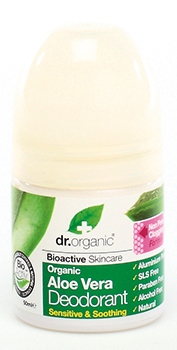No sweat!
In Advice
Follow this topic
Bookmark
Record learning outcomes
Help your customers stay cool and fresh all summer long with our guide to anti-perspirants and deodorants

Sweating is essential to regulating body temperature, but wet patches on clothes and body odour can be embarrassing. With such a huge range of anti-perspirants, deodorants and body sprays available, it can be hard for your customers to make a choice, so it's important that they understand the key differences between the types of products available in store:
Deodorants: €These mask and prevent odour, usually by means of an antibacterial action. Deodorants do not stop you from sweating,€ explains Dr Chris Flower, Director General of the CTPA (Cosmetic, Toiletry and Perfumery Association). €Ingredients include antibacterials such as alcohol or triclosan.€
Anti-perspirants: €Anti-perspirant deodorants (APDs) help prevent perspiration by dissolving in sweat and creating a thin coating of gel that covers the sweat glands. This coating reduces the amount of sweat released onto the surface of the skin, reducing wetness and risk of odour,€ says Dr Flower. €These commonly contain aluminium salts, such as aluminium chlorohydrate or zirconium salts.€
Body sprays: €These are fragrances that do not necessarily prevent odour but do mask it, and they do not stop sweating. They can be widely used on the body,€ says Dr Flower.
The APD and deodorant market
The market has declined by 3% in the last two years due to the rapid rise of discount stores pushing prices down, according to Mintel. The overall market is currently worth around £408 million, with a gradual decline to £394m predicted by 2021 if consumers continue to buy these products from discount outlets.
Supermarkets remain the most popular place to shop for deodorants, taking 66% of sales, followed by Boots at 13%, drugstores at 10%, discounters at 5% and other pharmacies at 3%.
While in 2015 free-from claims such as no additives and alcohol-free helped drive sales, consumers are now more interested in effective ingredients. However, there is still strong interest in 'natural' formulas. Mintel believes the biggest opportunity for growth in the category is by promoting 'hero' ingredients that really
work, rather than focusing on what a product doesn't include.
Although the market is crowded and usage among consumers is already high, manufacturers are still investing in innovation to help drive interest and sales in the deodorant and antiperspirant market. Dr Flower says: €Most recent innovations have been aimed at long-term protection from perspiration, quick-drying,
prolonged fragrance release and low risk of marking clothing. Aerosol products have benefited from the different packaging materials and techniques now available, including spray mechanisms to give better coverage and compressed aerosols for sustainability and convenience.€ Other recent trends include premium fragrances, antibacterial ingredients and added benefits such as hair minimising.
When asked what's important when choosing a deodorant, 54% said long-lasting dryness and 49% cited long-lasting fragrance, according to Mintel. Men are more likely to stick to one format, while 36% of women use two or more deodorant formats. Fragrance is becoming increasingly important, with 62% of users trying out different ones. Men are most interested in long-lasting fragrance, while women opt for lasting dryness.
Sweating explained
Every day we produce around one litre of sweat. Our skin contains millions of sweat glands €“ there are 25,000-50,000 in our armpits alone. There are two types of sweat glands €“ eccrine and apocrine. Eccrine glands help control body temperature and we have three million of these. Apocrine glands are found in the armpits and groin and can be triggered by stress and anxiety.
Sweat itself is odourless. €Body odour is caused by the effect of the bacteria that live naturally on skin, breaking down the natural lipids and proteins found in sweat. It occurs mostly in areas that contain a lot of apocrine sweat glands. Some people are more affected than others, probably due to genetic causes,€ explains Dr Ed Seaton, consultant dermatologist and British Skin Foundation spokesperson. €East Asians, for example, are less prone to body odour because they have fewer natural apocrine sweat glands.€ Underarm hair traps sweat, giving bacteria more time to break it down, which is why odour can build quickly here. Men are more likely to have body odour than women because they sweat more. Things that can exacerbate odour include being overweight, eating rich and spicy foods, alcohol and some medication, such as anti-depressants.
Self-help tips to reduce sweating and odour
€¢ Bath or shower daily using an antibacterial shower gel or soap to kill bacteria on your skin
€¢ Wash armpits daily with antibacterial soap
€¢ Shave your armpits €“ this allows sweat to evaporate faster
€¢ Wear natural fibres to allow skin to breathe
€¢ Wash clothes regularly
€¢ Limit spicy foods and red meat, which can make odour worse
€¢ Dry yourself well, especially areas which sweat. Bacteria can't breed as well on dry skin
€¢ Use an APD every day.
Hyperhidrosis
Excessive sweating affects about 3% of people and can have a serious impact on quality of life. €It is distinct from increased body odour and shouldn't be confused. In fact, people with excess sweating may be less prone to odour,€ explains Dr Seaton. €It's largely down to genetics. It can occur all over or, more commonly, in
the armpits, palms, upper back or face.€ If normal anti-perspirants don't help, you can recommend one that contains aluminium chloride, which works by blocking the openings of the sweat ducts. €Look for anti-perspirants that contain strong concentrations of aluminium chloride hexahydrate (20%). They should be applied to clean, dry skin and left overnight,€ says Dr Seaton. Customers with severe hyperhidrosis should consider getting advice from a dermatologist to exclude any underlying medical conditions. Products you could recommend to customers include: Sure Maximum Protection Antibacterial Odour Protection (RRP £4.99); Triple Dry Active 72h Advanced Protection (RRP £5.35); and Driclor Solution (RRP £6.19).
Picking the right product
You can help your customers work out which deodorant or APD will best suit their needs.
General body odour: a deodorant may be sufficient for their needs. Recommend: Clarins Eau Dynamisante Fragranced Gentle Deodorant (RRP £19.50) to neutralise odour; or Lynx YOU Body Spray Deodorant (RRP from £3.65) with a subtle, fresh fragrance.
 Seeking skincare benefits: Dove Core range (RRP from £3.55) now offers the same 48-hour anti-perspirant protection with even better skincare. The Dove relaunch extends across its entire portfolio of male and female antiperspirant deodorants. Dove Female's packaging has been redesigned with a new premium look to call out the unique ¼ moisturising benefits, supporting the range's positioning as the anti-perspirant that is designed to put care back into underarm skin for softer, smoother underarms. Meanwhile, the Dove Men+Care range
Seeking skincare benefits: Dove Core range (RRP from £3.55) now offers the same 48-hour anti-perspirant protection with even better skincare. The Dove relaunch extends across its entire portfolio of male and female antiperspirant deodorants. Dove Female's packaging has been redesigned with a new premium look to call out the unique ¼ moisturising benefits, supporting the range's positioning as the anti-perspirant that is designed to put care back into underarm skin for softer, smoother underarms. Meanwhile, the Dove Men+Care range
is the only male deodorant brand designed to be tough on sweat, not on skin, with 48-hour protection and Dove's ¼ moisturising technology to offer full sweat protection without irritation.
Protection from wetness and odour: an anti-perspirant deodorant will prevent both. Recommend: Right Guard Xtreme Women Dry 72h Anti-Perspirant Deodorant (RRP £1); or Nivea Men Silver Protect
48h Anti-Perspirant (RRP from £2.10), with antibacterial formula.
A great scent: suggest a body spray or an APD with a premium fragrance. Recommend: Dove Go Fresh Pear & Aloe Vera (RRP from £2.65) with a unique, fresh fragrance; or Impulse Instant Crush body
spray (£1.99).

Irritated armpits: Dr Organic Aloe Vera Deodorant (RRP £5.79) is an antibacterial deodorant liquid cream roll-on. Delicate yet highly effective with impressive skincare benefits, it is ideally suited for even the most sensitive skin and formulated with certified organic aloe vera, sunflower oil, Icelandic moss and vitamin E. Aloe vera is well known for its soothing and calming effects, making it perfect for sensitive, delicate and dry skin.
Wears dark clothes: for women concerned about white marks from deodorant or
yellow stains from perspiration on clothes, recommend: Nivea Invisible Black & White
48h APD (£2.50).
Eco-friendly customer concerned about ingredients: if they want to avoid aluminium ingredients, recommend Soft & Gentle 0% Aluminium APD spray (£2.99); while Sure Women Compressed Crystal Clear Aqua Anti-Perspirant (£1.75) uses less gas.
